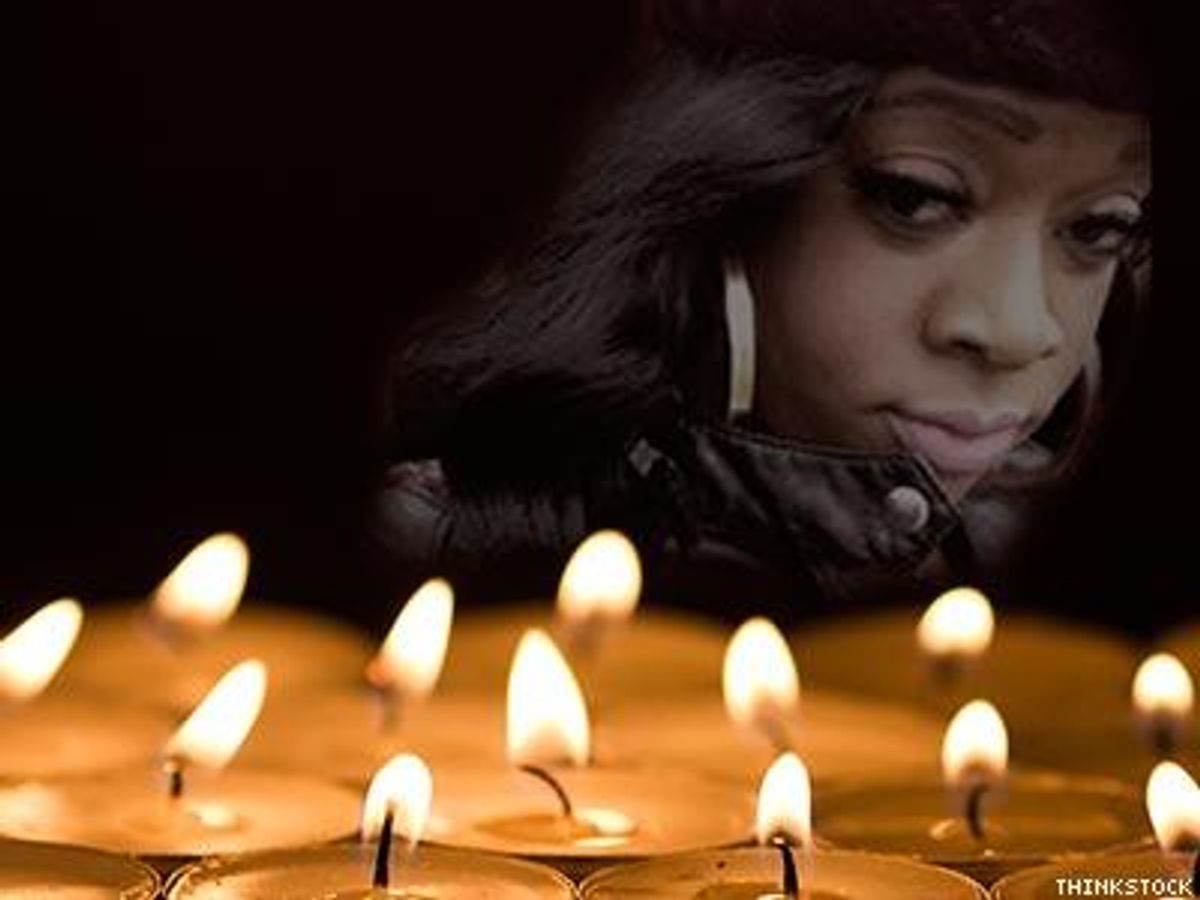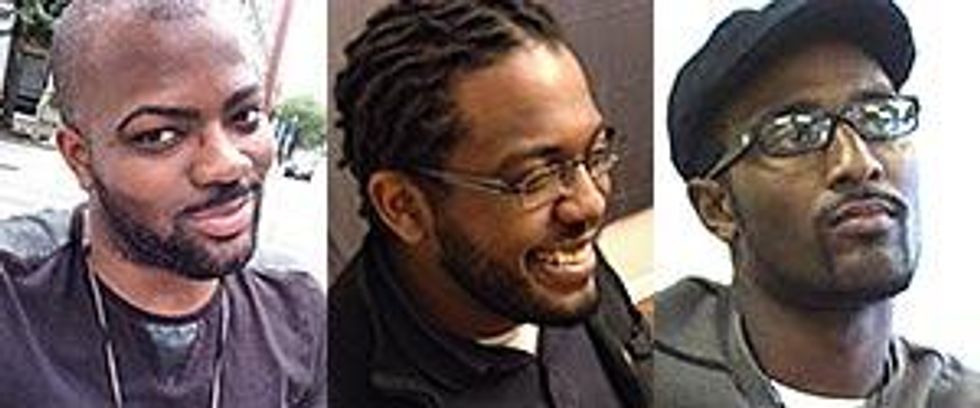"If you are silent about your pain, they will kill you and say you enjoyed it." -- Zora Neale Hurston
This is a letter from one cis-brother to another.
The history of black oppression is defined not only by the stories we share, but by the stories we silence. At the core of the movement for black lives are the stories of the victims of state-sanctioned violence. We must repeatedly show the body of evidence of our oppression by highlighting the literal black "bodies" the state has destroyed. Yet time and time again, the stories of black cis men have been highlighted, their narratives uplifted while the narratives of black women were added as an afterthought. This violent act of erasure for black women generally is compounded for black trans women, who are surviving on the intersection of too many systems of interlaced oppression.
Women like Deoni Jones. She was a young, brilliant, black trans woman. She was robbed of her life while she was waiting at a bus stop in Washington, D.C. A black man approached Deoni and stabbed her in the side of the head. She was then transported to a local hospital and admitted in critical condition. The wound had penetrated her skull. She died the next day.
Despite those who might consider this as an isolated act of violence, it happens far too often. Ask the parents of Penny Proud, who was shot multiple times in New Orleans, or the family of Tamara Dominguez, who was run over by a truck in Kansas City. Dozens of trans women of color, the majority of whom are black, have been murdered over the last year with no rallying cry from cis black men. We must say their names!
The violence committed on black trans women is perpetuated by a culture of transphobia that is deeply woven in our culture. It's been sewn together by our fathers and uncles, who learned from their fathers and uncles. It's stitched together by each song, lyric, and inherited slur that we spew without the slightest idea of the meaning or implications. And because of this verbal abuse, the same trans women who are on the front lines fighting for black liberation have to fight for their own safety within black communities. The movement cannot move an inch past the chains we have placed on trans women.
When we hear "#BlackLivesMatter," we must remember all black women -- cis, genderqueer, and trans -- are included. It is nonsensical to expect someone to protest for you when you won't even recognize her existence. Black trans women are part of the reason that movement has proven resilient, flexible, and powerful. We must take their example of collaborative solidarity. Cis black men, we must do better.
We should declare that black trans women and girls matter. We can no longer afford to live in a world where we don't know the names Islan Nettles, Mia Henderson, Londyn Chanel, Cemia Dove, Tiffany Edwards, and every other black trans woman who is killed. We cannot erase the heart of our movement because of our preconceived notions of who is more deserving of life.
The brutality and violence being committed against black trans women is real. We must call out that violence. It's happening in our own cities, our states, and throughout this entire country. This plague of violence toward black trans women, our black sisters, needs to end. It needs to end immediately.
This Tuesday, we move further toward this end. All throughout the country, cis black men will say the names of black trans women who have been victimized by our transphobia, and acknowledge that our silence equals complicity. We will uplift their names and ensure that their stories are told.
Today, I admit my complacency in this culture and make a decision to stand with black trans women like they have stood with us. I invite all my brothers to join us on Tuesday as we, cis black people and coconspirators, answer the call to truly love, support and protect our trans sisters for #BlackTransLiberationTuesday.
 PRESTON MITCHUM is a Washington, D.C.-based advocate, essayist, and activist. He is the policy cochair of BYP100 (D.C. Chapter), an activist member-based organization of black 18-35-year-olds, dedicated to creating justice and freedom for all black people. Follow him on Twitter @PrestonMitchum. AARON GOGGANS is an organizer with Black Lives Matter: DMV. QUINN KAREEM RALLINS is a social activist, organizer, essayist, and poet. He is a graduate of Morehouse College and the M.Sc program at the University of Oxford. He was born and raised on the South Side of Chicago.
PRESTON MITCHUM is a Washington, D.C.-based advocate, essayist, and activist. He is the policy cochair of BYP100 (D.C. Chapter), an activist member-based organization of black 18-35-year-olds, dedicated to creating justice and freedom for all black people. Follow him on Twitter @PrestonMitchum. AARON GOGGANS is an organizer with Black Lives Matter: DMV. QUINN KAREEM RALLINS is a social activist, organizer, essayist, and poet. He is a graduate of Morehouse College and the M.Sc program at the University of Oxford. He was born and raised on the South Side of Chicago.


 PRESTON MITCHUM is a Washington, D.C.-based advocate, essayist, and activist. He is the policy cochair of BYP100 (D.C. Chapter), an activist member-based organization of black 18-35-year-olds, dedicated to creating justice and freedom for all black people. Follow him on Twitter
PRESTON MITCHUM is a Washington, D.C.-based advocate, essayist, and activist. He is the policy cochair of BYP100 (D.C. Chapter), an activist member-based organization of black 18-35-year-olds, dedicated to creating justice and freedom for all black people. Follow him on Twitter 
















































































